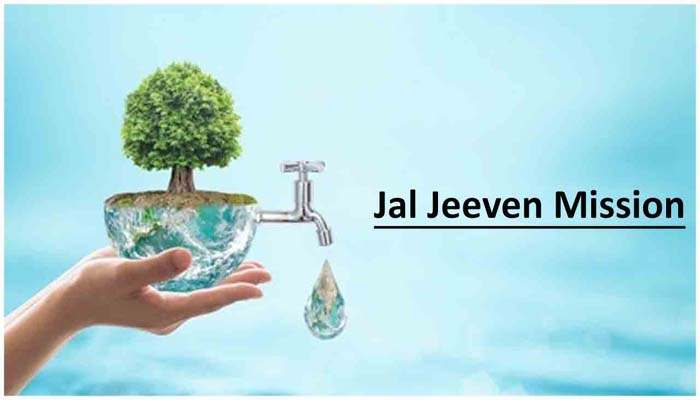Despite adverse weather conditions and challenges of transportation in many areas in difficult terrain, J&K Jal Shakti Department is ensuring piped water to every household in rural areas to accomplish its target of Har Ghar Jal.
The department has provided tap water connection to every household of more than 1000 villages in Jammu and Kashmir under governments flagship programme Jal Jeevan Mission. Besides, 100 percent FHTCs have been provided in Ganderbal and Srinagar in the first phase which included 11 blocks, 383 panchayats and 925 villages.
The department aims to provide tap water connections in the entire UT by the end of 2022, two year before the target.
Under this ambitious project of Jal Jeevan Mission, Palli village of Samba, from where Prime Minister addressed the nation on National Panchayati Raj Day, has been fully saturated with 448 FHTCs at a cost of Rs. 143.40 lakh. The Palli village water supply project also included a tube well of 6000 gallons of discharge capacity per hour.
Randhir Sharma, Sarpanch of Palli Panchayat expressed gratitude to PM Narendra Modi for providing piped water connection to every household in his village.
“We are very happy that we got running water taps for the first time after independence. Earlier, it was a hard task to get water from hand pumps which were a source of various water-borne diseases,” Sharma said.
Similarly, Farooq Sofi, resident of Dooniwari Budgam, is grateful to present government for starting work on OHT under JJM which will provide regular tap water supply in their homes.
Assistant Executive Engineer, Jal Shakti Department,Tabish Qureshi, says active participation, support of people and PRIs of Fakir Gujri helped in realisation of Har GharJal in this hilly hamlet. Fakir Gujri hamlet is part of Srinagar district which has been fully covered under the Mission.
To ensure quality water supply, Jal Shakti Department under the aegis of Jal Jeevan Mission has also setup 97 water testing laboratories across J&K.
Jal Jeevan Mission not only ensures regular tap water supply but also stresses on water quality. Water testing is important for monitoring the operation of water supply, verification of the safety of drinking water, investigation of disease outbreaks, validation process and preventive measures.
Under JJM, water quality testing tools would be used for measuring the purity of drinking water, at the source, within a piped distribution system or at the end of the supply. Drinking water quality monitoring and water quality surveillance are distinct yet, closely related activities. The drinking water quality will be monitored by the supplier/ agency responsible for water quality whereas the surveillance of water quality at the grassroots will be the responsibility of the GPs/ rural community.
Besides, upto 2% of total fund allocation is to be used on water quality monitoring and surveillance activities which primarily comprise water quality monitoring by the department through laboratory testing and water quality surveillance by the community through testing local water sources using Field Test Kits (FTKs). All drinking water sources are to be tested once a year for chemical contamination and twice a year for bacteriological parameters.
To empower the local community on water quality surveillance in J&K, Jal Shakti Department has embarked on a mission to identify and train 5 persons especially women in each village from the local community including ASHA workers, health workers, VWSC/ Pani Samiti members, teachers and SHG members to conduct water quality tests using FTKs/ bacteriological vials at the village level, schools and Anganwadi centres.
To install ‘sense of Ownership’ for the Piped water supply infrastructure in the community, J&K Jal Shakti Department under the banner of Jal Jeevan Mission has embarked on a mission to constitute Paani Samiti in every village.
The role of Pani Samitis is to implement the in-village piped water and related infrastructure development.
Pertinently, a central fund of Rs 2,747 crore has been allocated to Jammu and Kashmir in 2021-22 for implementation of Jal Jeevan Mission, which is nearly four times the allocation made during 2020-21.

